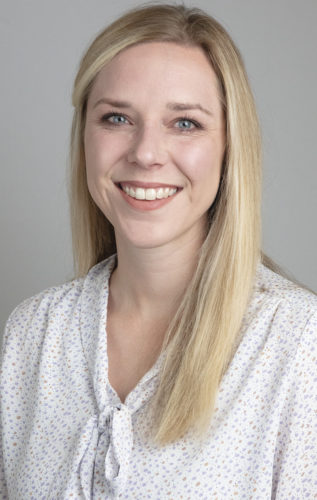Truterra, a Land O’Lakes company, provides sustainability and stewardship solutions for the agriculture community, acting as matchmakers between food and ag companies and farmers, with a focus on helping farmers make more sound agronomic, economic and environmental decisions that benefit the farm and the local communities in which they reside.
During the summer of 2024, the organization launched dairy-specific programs to aid dairy producers in adopting climate-smart practices.
Progressive Dairy Editor Jenn Coyne spoke with Jamie Leifker, president of Truterra, to learn more about industry efforts to support sustainable dairy farming practices and reach goals within the dairy supply chain.

Jamie Leifker. Courtesy photo.
How has the conversation around sustainability in agriculture evolved over the years?
LEIFKER: The conversation has shifted in recent years as increased consumer awareness about the origins of their food and related environmental impact has driven demand for sustainably-produced products. Food companies can completely switch to renewable energy at their factories, but their total greenhouse gas (GHG) emissions won't change much without help from the farmers who supply them. As companies seek to reduce their carbon footprint, farmers hold the keys – and that’s where we’re seeing the sustainability conversation center today.
Creating financial benefits within the carbon market can be a challenge for dairy producers. Walk us through why those challenges exist.
LEIFKER: There is a lot to navigate when it comes to carbon markets: complex data collection, education gaps, uncertainties about the long-term outlook and beyond. It is imperative for businesses to recognize these challenges and identify solutions.
What Truterra has successfully done is help farmers navigate the risk by getting trusted advisers engaged because agronomy is local, not regional or national. When it comes to working with farmers, the approach is to work with and through ag retailers, who are farmers' trusted advisers, to understand a holistic picture of what changes can be made to reduce overall farm emissions.
Why is it important to have opportunities specific to dairy producers?
LEIFKER: Dairy farming is an essential component of the economy and a source of wholesome, local food. Supporting dairy farmers in their efforts to be more sustainable and reduce the environmental impacts will not only improve the long-term soil health on their farms and the overall efficiency of the operations, but it will in turn provide food businesses with more sustainably sourced products.
What programs are available for dairy producers to support their sustainability journey?
LEIFKER: The 2024 Truterra dairy soils carbon programs reward pre-qualified dairy producers who adopt sustainable farming practices on the crops they use for dairy feed – including silage and alfalfa. Sustainable practices include the use of cover crops, strip-till or no-till to improve soil health and increase soil carbon levels. These are our first-ever programs targeted to reward dairy producers, and they are supported by leading dairy companies like Land O’Lakes, Bel Brands and Dairy Farmers of America.
What do you hope to accomplish with these programs specific to dairy producers?
LEIFKER: We aim to impact the sustainability of agricultural production and in turn create new sources of farm revenue. We’ve seen exciting results to date with the carbon program for row-crop growers, which has paid more than $21 million to farmers for the sequestration and reduction of over 1.1 million metric tons of carbon in its first three years. We hope to continue building on this momentum by expanding to dairy producers through the new dairy soils carbon programs.
Where do you see the industry taking sustainability in the future as producers are supported to meet goals on-farm and within the supply chain?
LEIFKER: Through the U.S. Dairy Net Zero Initiative by the Innovation Center for U.S. Dairy, the dairy industry has a goal of reaching net zero carbon emissions by 2050, so there is already a concerted effort underway from producers to improve sustainability. As the industry works toward this goal, I expect offerings like the carbon market will continue to evolve with higher producer incentives, improved tools for data collection and increased partnership between farmers, ag retailers and food companies.
Education continues to be the number one priority to help farmers understand why they might benefit from carbon programs and how to get involved. We are constantly refining our approach to help bridge this gap, including how we educate farmers and articulate how they are helping the food companies we partner with.
As time progresses and with the continued evolution of carbon programs to fit the needs of farmers like we are doing, I believe we’ll see continued clarity and understanding come to light among the broader ag community around the benefits of carbon markets, which will lead to more farmers actively seeking out ways to get involved.










